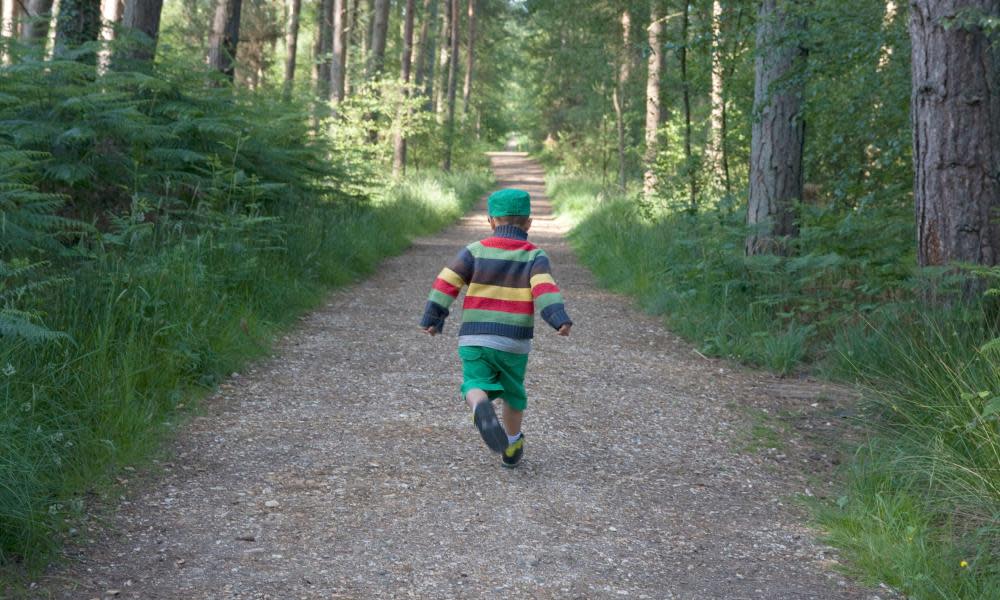Sadly, children’s services are not a political priority

If the English children’s services system is a “tower of Jenga held together by Sellotape” (Children’s services in England shaky as Jenga tower, says review lead, 17 June), then kinship carers and the children they care for are the blocks that have already toppled off the sides.
For too long, kinship care has been marginalised by policymakers and treated as the poor relation to adoption. Yet evidence tells us that well-supported kinship care offers continuity, stability and the preservation of important family bonds, the very same basic obligation to children that the independent review of children’s social care report outlines.
The common experience of the 150 kinship carers who contributed to the report – of huge sacrifices made at short notice for the children they love, with little support – is one that we have heard many times.
Those caring for the most vulnerable children in our society, whether foster carers, adopters or family and friends, deserve the same levels of support. They all need access to financial, practical, therapeutic and other help.
We also estimate that for every 1,000 children moved from local authority care to well-supported kinship care, the public purse saves £40m. Investment in support for kinship carers is the clear answer, and will ultimately provide more children with the safe, loving homes that too many are missing.
Lucy Peake
Chief executive, Kinship
• After 40 years in social work and children’s services, I am sick and tired of reading yet another in an inglorious line of reports or inquiries into children’s welfare. The pattern over the past 40 years is a familiar one. Much hand-wringing, blaming and scapegoating, followed by politicians’ platitudes and misleading statements about “record” investment.
Ten years ago, a report by Prof Eileen Munro, which was commissioned by Michael Gove, came to the same conclusions as this latest one. But the elephant in the room is never acknowledged – that Britain is a society that doesn’t care about children; they are not a political priority while their lives are lived in a culture of indifference, scapegoating, tolerance of physical abuse, denial of the mental health challenges they face, and a lack of respect, value or human rights.
Steven Walker
Retired principal social work lecturer, Essex
• The investigation by the Early Years Alliance that has accused the government of “shamelessly, knowingly” underfunding the early years sector in England over the past decade comes as no surprise (Ministers ‘knowingly underfunding’ childcare sector in England, 17 June).
As someone who runs one of the UK’s largest and most successful charitable social enterprises with 42 nurseries across London, it’s shocking how this drastic underfunding is driving the cost of childcare up and the quality of service down across many nursery providers. This is particularly disgraceful given it impacts even more on children from disadvantaged backgrounds.
There is clear evidence that children who attend nurseries with good quality care and education help achieve better outcomes in life. Early years settings provide significant benefits to broader communities in which they operate. This includes improved social integration, employment, improved economic benefits and reduced health inequality.
Considering that the childcare sector (which was ranked as the fourth emergency service during the pandemic) makes an annual contribution to the GDP of 3% or £6bn, provides a childcare infrastructure to enable more than a million families to work and employs nearly half a million staff, surely we all deserve better.
June O’Sullivan
London Early Years Foundation
• The story that the government has purposefully underfunded the childcare sector should ring alarm bells for all who are concerned about social mobility and positive outcomes for children. High quality early education has the ability to narrow the achievement gap that opens up before children even start school. But in order to do this, the quality of care and learning must be prioritised. Instead, the Early Years Alliance has uncovered the government’s race to the bottom to provide early education at as low a cost as possible. As the country looks at how we support children to catch up missed learning over the last year, this approach to the crucial early years is a missed opportunity to help children start school on a more even footing.
Megan Jarvie
Head of Coram Family and Childcare
• Have an opinion on anything you’ve read in the Guardian today? Please email us your letter and it will be considered for publication.

 Yahoo Movies
Yahoo Movies 
